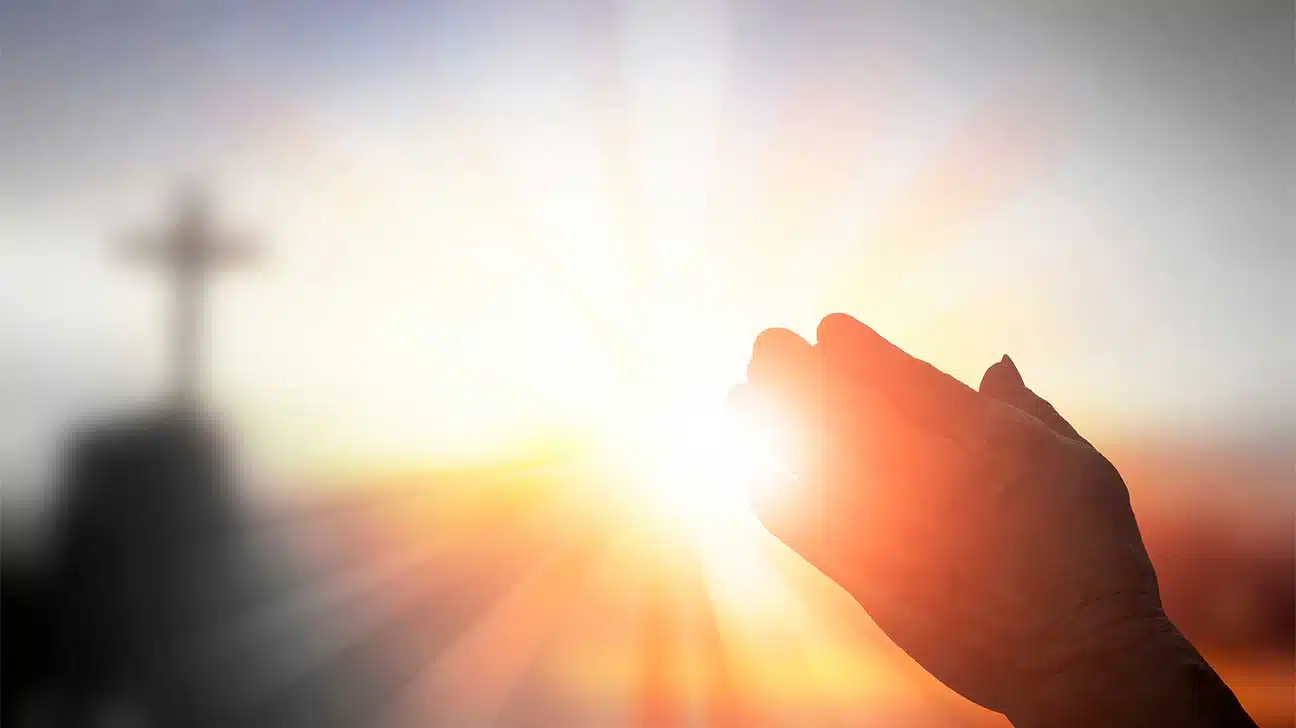
At the closing of some AA meetings or similar 12-step meetings, the Lord’s Prayer is often said. Sometimes it is replaced with the Serenity Prayer or some other form of closing.
Learn about the history of why this specific closing prayer is used, how people feel about it today, and what options are available for people who want a secular or non-Christian approach to recovery.
History Of The Usage Of The Lord’s Prayer In AA Meetings
AA was created by co-founders William Wilson, also known as “Bill W,” and Robert Smith, or “Dr. Bob,” in 1935 in Akron, OH.
The principles of AA are largely based on teachings from both the Bible and a religious group called the Oxford Group.
What started as an American group became an international movement seeking to break people free from the grip of addiction, no matter their background.
AA offers an accessible treatment resource for many people who may struggle to afford therapy or find the right support.
Historically, the Lord’s Prayer, along with other prayers and passages from the Bible, were used by the Oxford Group before the existence of “the big book” of AA and what we know of AA meetings today.
The Lord’s Prayer
The Oxford Group said the Lord’s Prayer at the end of its meetings, and use of the prayer carried over to AA when the program was founded. It is still said to close some AA meetings today.
Here is the Lord’s prayer, from the New Testament in the Bible:
“Our Father which art in heaven,
Hallowed be thy name.
Thy kingdom come,
Thy will be done on earth, as it is in heaven.
Give us this day our daily bread.
And forgive us our debts/forgive us our trespasses, as we forgive our debtors/as we forgive those who trespass against us.
And lead us not into temptation, but deliver us from evil: For thine is the kingdom, and the power, and the glory, forever.
Amen.”
About The Lord’s Prayer
The Lord’s Prayer is the prayer that Jesus is said to have taught his followers when they spoke to a higher power.
There is a shorter version and a longer version in the Bible, one being part of the Sermon on the Mount, and the other being in Matthew 6:9-13.
The prayer delves into the nature of god, including seeking the assistance of the divine to attend to an individual’s basic needs while helping them abstain from the influence of evil.
The reference in Matthew speaks about focusing on trying to be a good person first and foremost and letting god worry about basic needs getting met.
Arguments Against Using Prayer In AA Meetings
AA was founded on Christian ideals. Though many AA meetings make space for people of different religious backgrounds, many members feel that AA is still very Christian focused and may feel out of place, especially if they are agnostic or atheist.
Spirituality is known as a protective factor for mental health, helping people heal, cope, and develop a healthy outlook. It is part of the reason why AA was created in the first place.
This is not to say that spiritual belief helps everyone, or that atheists and agnostics don’t have a similar healing capacity.
Feelings Of Not Belonging
Many argue that AA is, in its nature, a spiritual program. AA literature speaks about surrendering to god or a spiritual force, while also gaining strength, guidance, and comfort from that same force.
Each AA group is autonomous, and each member gets a say. Home groups are able to determine for themselves if they wish to have prayer as part of their meetings.
The phrase “imagine god as you would see god” while using a Christian-based prayer can make some AA members feel as if they don’t belong.
This could hinder their progress in recovery, keeping them from committing fully to the 12-step program or building connections.
Solutions For Inclusivity In Addiction Recovery Groups
There are options for AA members who are non-Christian. Many AA meetings today do not include Christian prayers in closing, or at any time during the meetings.
Many AA groups welcome people of all belief systems, work proactively toward inclusivity, and avoid saying the Lord’s Prayer in closing.
AA’s international journal, AA Grapevine, often includes stories from AA members who are not Christian, belong to another religion, or are atheist or agnostic.
For people who are Buddhist, Muslim, Jewish, or have other religious beliefs, there are networks that offer recovery meetings with added inclusivity for these belief systems.
Non-Christian faith-based recovery groups include but aren’t limited to:
- Buddhist Recovery Network
- Millati Islami
- Jewish Alcoholics, Chemically Dependent Persons, And Significant Others (JACS)
Another option is SMART Recovery, a recovery support group with a secular format, a welcome change for people who do not find comfort in the belief in a higher power.
Find Addiction Treatment Today
Everyone’s healing journey is different. Some formats may work better for some than others. Reach out to us today to find a treatment option that works best for you.
Published on January 18, 2024
Addiction Resource aims to provide only the most current, accurate information in regards to addiction and addiction treatment, which means we only reference the most credible sources available.
These include peer-reviewed journals, government entities and academic institutions, and leaders in addiction healthcare and advocacy. Learn more about how we safeguard our content by viewing our editorial policy.
- AA in the Desert — A Letter From Bill Wilson About The Use Of The Lord’s Prayer At A.A. Meetings
https://aainthedesert.org/wp-content/uploads/2019/01/BILL-W.S-LETTER-ABOUT-THE-LORDS-PRAYER.pdf - Big Book Sponsorship — The history behind reading The Lord’s Prayer at 12 Step meetings
https://bigbooksponsorship.org/articles-alcoholism-addiction-12-step-program-recovery/aa-history/history-reading-lords-prayer-12-step-meetings/#:~:text=Bob%20and%20the%20Good%20Oldtimers,literature%2C%20for%20inspiration%20and%20guidance. - Substance Abuse and Mental Health Services Administration (SAMHSA) — Find Treatment
https://findtreatment.samhsa.gov/
